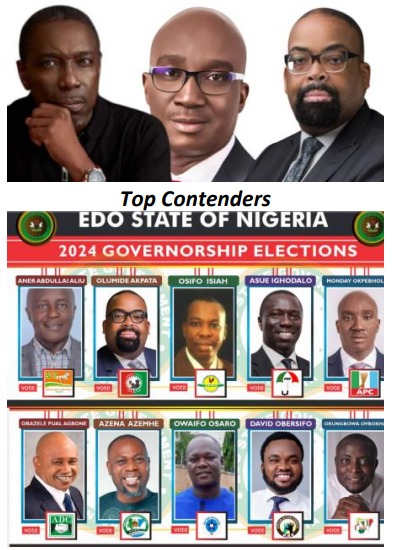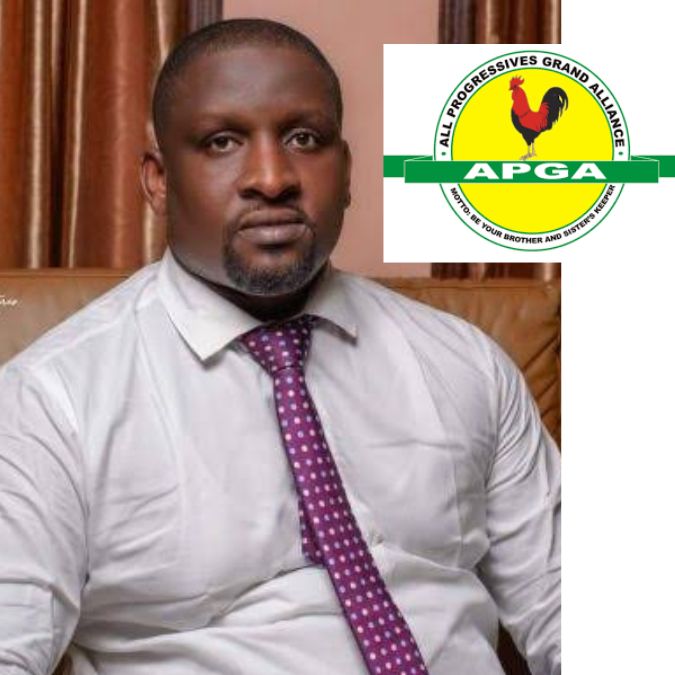APGA National Chairman, Chief Barr. Sly Ezeokenwa, Echoes on Valuable Lessons for political parties, including APGA at the Aftermath of the EDO 21st Gubernatorial Elections. Written by NDUKA ANYANWU
The Edo State governorship election held on September 21, 2024, provided valuable lessons for political parties, including APGA.
Key Election Statistics:
- Total Registered Voters: 2,629,025
- Total Collected Voters’ Cards: 2,249,780
- Security Personnel: 35,000 policemen, 8,000 other security agents
The election was marked by controversy, with the incumbent Governor describing it as a “do-or-die” election, alleging federal government interference in favor of the APC candidate. The PDP accused the state police command and INEC commissioner of being associates of Nyesom Wike, former Governor of Rivers State and current Minister of the Federal Capital Territory.

Despite the tensions, Inspector General of Police Kayode Egbetokun assured the public of the police’s impartiality and lack of bias. The election’s outcome is determining the fate of Edo State’s governance in the coming days
LESSONS LEARNED
1. Strategic Planning: APGA’s focus on developing a winning plan and supporting the campaign was
crucial in their preparation for the election . This emphasizes the importance of careful planning
and strategy in electoral success.
2. Effective Campaigning: The election timetable allowed for public campaigning from April 24 to September 19, 2024. This highlights the need for parties to maximize their campaign efforts within the allotted timeframe.
3. INEC’s Role: The Independent National Electoral Commission (INEC) played a vital role in conducting the election, with preparations underway 53 days prior to the election. This underscores the significance of INEC’s responsibilities in ensuring free and fair elections.
4. Party Collaboration: INEC’s quarterly consultative meetings with party leaders facilitated open communication and cooperation. This demonstrates the value of collaboration between political parties and electoral authorities.
5. Electoral Integrity: The election’s outcome and conduct offered insights into maintaining electoral integrity, a crucial aspect of democratic processes.
APGA’s Commitment to Democracy
Under Chief Barr. Ezeokenwa’s leadership, APGA has reaffirmed its commitment to democratic principles. The party has:
- Embraced Digitalization: APGA has become the first political party in Nigeria to go digital, with a digitalized membership system.
- Established an NGO: The party has founded a non-governmental organization (NGO) to give back to society.
- Invested in Youth Development: APGA has set up an ICT center at its regional office in Awka, providing free training for youths.
As APGA and other political parties reflect on the Edo gubernatorial elections, they must prioritize strategic planning, effective campaigning, and collaboration with electoral authorities. By embracing digitalization, establishing an NGO, and investing in youth development, APGA has demonstrated its commitment to democratic principles and community engagement. By analyzing these factors, APGA and other political parties can draw valuable lessons to enhance their performance in future elections.
Note: This article is written on behalf of Barrister Sly Ezeokenwa, the APGA National Chairman by Nduka Anyanwu.




